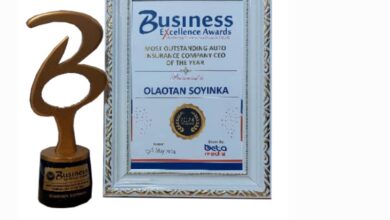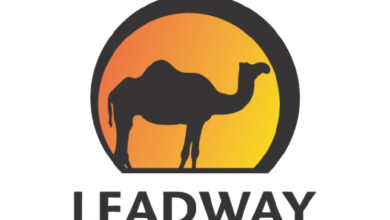ATI’s Role in Africa’s Competitiveness in New Global Order

African Trade Insurance (ATI) Agency was created in 2001 as a political risk provider and since its inception, it has become a much sought-after partner and continues to bridge the gap in proposals between sovereigns & investors and creditors & suppliers.
In the sovereign space, ATI sees growing recognition of sustainability and the need for all partners to have comprehensive discussions on the priority of transactions.
Ghana became a shareholder of ATI in 2020, with financial support from KfW Development Bank through the German Government.
The African Trade Insurance Agency (ATI) started in 2001 as a provider of political risk insurance for Africa. Back then, it focused mainly on global investors keen to hedge the risk of potential government actions or inactions. ATI soon realized that there was a real opportunity in resolving the challenges around the cost of funds and the volume of alternative private capital waiting to do business on the continent.
Today, ATI has become a much sought-after partner. As a result, the pan-African multilateral insurer continues to bridge the gap in proposals between sovereigns & investors and creditors & suppliers.
In particular, in the sovereign space, ATI sees growing recognition of sustainability and the need for all partners to have comprehensive discussions on the priority of transactions. Because commercial debt and bond markets come with pricing considerations, ATI can do more to improve risk perception and mitigate risks for investors and traders, and also further guide capital to the most sustainable transactions.
In an increasingly competitive global marketplace, companies that have goods or services to sell will only be able to compete if they can offer credit terms to their buyers. In a practical sense, companies with credit risk insurance have more leverage with banks and are able to negotiate favourable lending terms precisely because the banks’ investment will be protected by insurance coverage. For the seller, this credit line can be used to bankroll their business while they extend more flexible payment terms to the customer. This is the future of global trade and complements AfCFTA, which aims at accelerating intra-African trade and boosting Africa’s trading position.
In 2021, ATI insured a portfolio of trade and investments across Africa valued, at US$6.6 billion, and since its inception, ATI has supported US$71 billion worth of investments and trade into Africa. ATI is able to support such volumes of transactions in part because of an impressive network of international financial institutions such as reinsurance companies and financiers.
This clout is essentially what will benefit Ghana on several fronts. First, thanks to its membership in ATI, the government can, as other West African member countries of ATI, use ATI’s insurance to attract commercial financing at the levels of more developed economies. This means financing at better terms and longer duration, and can subsequently help pay off more expensive debts and create a more sustainable debt management process.
More broadly, other sectors of the economy also stand to benefit. In the financial services sector, Banks in particular stand to gain, as ATI’s presence will help to increase banks’ access to credit insurance. This insurance supplements the collateral that banks heavily rely on in lending to Small and Medium-sized Enterprises (SMEs). These SMEs account for the majority of businesses worldwide and are important contributors to job creation and global economic development. Thanks to ATI, banks in Ghana have therefore potentially gained additional and improved new revenue streams, consequently helping the Ghanaian economy to grow. The manufacturing and trade sectors also benefit from ATI’s credit insurance by expanding their sales beyond Ghana, enabling a targeted approach for exporters and suppliers and to import needed goods that can help build their companies.
The Energy Sector will also be on the winning end of this partnership with ATI. Through ATI’s Regional Liquidity Support Facility (RLSF), backed by KfW Development Bank and NORAD, Ghana can help mitigate the negative impacts of climate change. The Facility was created to help tackle climate change by supporting renewable energy projects in ATI’s member countries. RLSF supports small and mid-scale renewable energy projects by protecting the developers against the risk of delayed payments by public off-takers. This ensures that more renewable energy projects reach financial close, enabling the government of Ghana to create a greener energy mix to help mitigate climate change. The Facility can be accessed once Ghana signs onto the RLSF Memorandum of Understanding, a process expected to be finalized over the next year.
In conclusion, ATI will held its 22nd Annual General Meeting in Accra on 23rd June 2022, which was co-hosted by Ghana’s Ministry of Finance. In 2020, the country became a shareholder of ATI with financial support from KfW Development Bank through the German Government.
Since then, ATI has backed projects and trade-related transactions in various sectors, including Financial & Insurance activities, Construction, Wholesale & Retail, Energy & Gas as well as Mining & Quarrying sectors with active gross exposure of over US$440 million. These projects are in addition to a pipeline of transactions that ATI expects to complete in the coming months.





